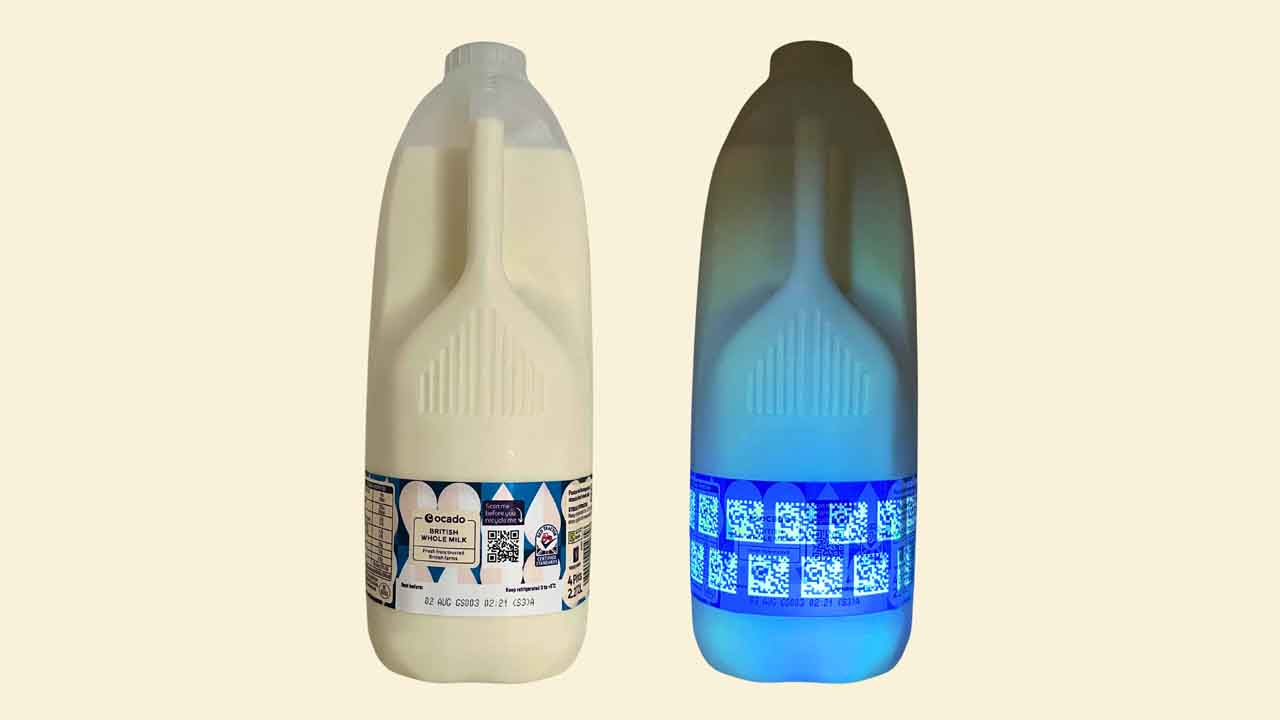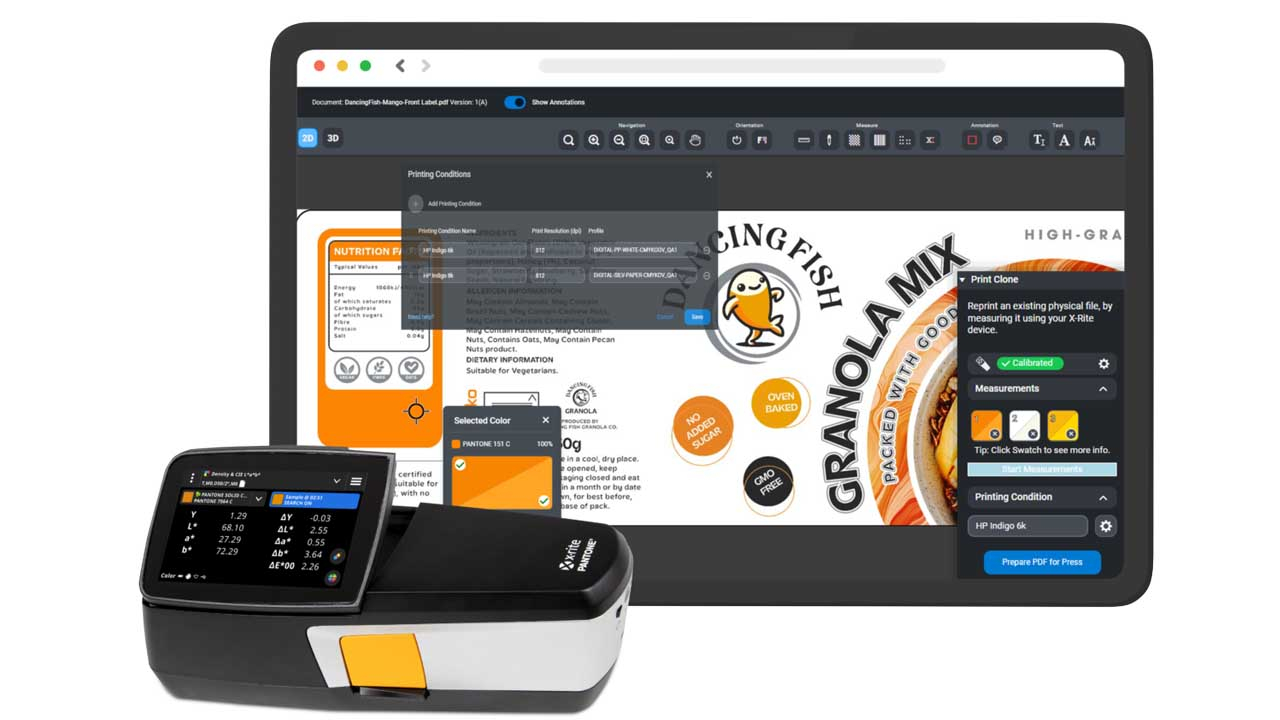Ocado Retail first UK grocer to scale packaging traceability
Ocado Retail has begun applying UV watermarks to Ocado Retail’s milk range.

Ocado Retail has become the first UK grocer to scale packaging traceability through its partnership with Polytag, using UV invisible tag technologies to support a more transparent, data-led recycling system.
The online grocery retailer’s roll-out includes the full Ocado Retail milk range and marks a foundational step in enabling circularity at scale.
In partnership with Polytag, the UK’s leader in connected packaging and recycling technology, Ocado Retail has begun applying UV watermarks to Ocado Retail’s milk range. The UV tags are invisible to customers but readable at Material Recovery Facilities (MRFs) and supply Ocado Retail with accurate, item-level data on where and when packaging is recycled.
These ‘tags’ will enable real-time, barcode-level insights into where, when, and how much of Ocado Retail’s packaging is being recycled, offering a level of visibility that has never-before been available at this scale.
The move builds on Ocado Retail’s position as a founding partner of Polytag’s Ecotrace Programme, a world-first initiative that is reshaping how the UK’s packaging is tracked and accounted for once it enters the waste stream.
In parallel, more than 100 Ocado Retail own-label products now feature Polytag QR codes that provide consumers with clear recycling instructions and sustainability information, helping bridge the gap between packaging design and its end-of-life impact.
Through the program, Polytag has installed a network of plastic detection units (PDUs) in high-volume material recovery facilities (MRFs) across the UK and Northern Ireland. These units are now capable of monitoring nearly 50 percent of the UK’s household recycling stream, detecting UV-tagged items automatically and sharing live, verified data via the Polytag dashboard.
This granular information will deliver unprecedented insight into the lifecycle of Ocado Retail’s packaging, enabling it to benchmark real-world recycling rates and make informed decisions to meet the requirements of extended producer responsibility (EPR) legislation, which calls for retailers to take responsibility for the full lifecycle of their packages, and reduce associated fees.
Data on the product type and location will provide a new level of traceability that can support real-time optimization of recycling strategies, ultimately improving recycling rates and reducing downcycling, where packaging is turned into less valuable material. As brands begin to take more responsibility for the recycling of their packaging under EPR, this data will prove vital in enabling the UK to reach its goal of a 65 percent recycling rate by 2035.
Ocado Retail’s collaboration with Polytag represents a major leap forward in how retailers engage with the lifecycle of their packaging, redefining responsibility in a world where environmental performance can no longer be estimated or assumed.
Alice Rackley, CEO of Polytag, said: ‘This is the beginning of an industry-wide shift towards a more transparent recycling system. Retailers and brands can no longer afford to be in the dark about what happens to their packaging. Ocado Retail’s scale and pace in rolling out this technology has established a template for the whole industry, and proves what’s possible, and necessary, as we enter a new era of accountability for FMCG brands. The data now exists. The infrastructure is in place. Ocado Retail is showing the industry how to use it.’
Laura Fernandez, senior sustainability manager at Ocado Retail, said: ‘Ocado Retail is constantly looking for data-driven approaches to reduce environmental impact, and we’re proud to be the first online retailer to introduce Polytag’s UV-watermark technology on our own brand range. The technology allows us to truly understand the full lifecycle of our packaging, and make meaningful decisions based on that data. Being able to track our products through the recycling system is a significant milestone as we pave the way toward more sustainable practices.’
Stay up to date
Subscribe to the free Label News newsletter and receive the latest content every week. We'll never share your email address.

